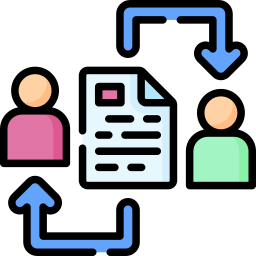Transparency & Research Data
Data sharing allows others to reuse the results of previous experiences and fosters the development of new knowledge based on previous results, making the search process more efficient. Data sharing also promotes transparency and replicability, which are essential for building trust in science. ISRDO Press is a Transparency and Openness Promotion (TOP) guidelines signatory and encourages Authors to make data underlying the findings in their research easily accessible for reproducibility purposes.
The precise notion of what constitutes research data differs from one area to another, but is generally understood as the result of observations or experiments validating the results of the research and which are not already published in an article. Although much of the data is usually already published as part of an article, there are several types of additional data that are not made available through the publication of an article. This may include, but is not limited to, raw data, processed data, software, algorithms, protocols, methods, materials, etc.

Data Sharing Principles
The following principles form the basis of the Publication research data policy:
- Research data should be made available to all researchers free of charge, as far as possible, and with a minimum of reuse restrictions.
- Researchers should retain control over when and how their research data is accessed and used, and should be recognized and valued for the investments they make in creating and making available research data.
- Research data expectations and practices vary from one discipline to another, and the specific requirements of each discipline must be taken into account.
- Enabling the efficient reuse of research data is a common goal and all stakeholders should work together to pursue this collectively, in order to find efficiencies and avoid duplication.
- Platforms, publications, tools and conservation services can improve research data by enhancing their potential for discovery, use, reuse and citation.
- When others add value and / or incur significant costs to improve research data to allow reuse, these contributions must be recognized and valued.

Research Data Policy
The ISRDO Research Data Policy is based on a concept of "encourage, but not mandate" when it comes to sharing research data. As such, authors are encouraged to place their research data in a relevant data repository and to cite and link the dataset to their article. In cases where data sharing is not possible for any reason, authors are encouraged to make a statement to explain why the search data cannot be shared.
Authors who reuse data available in public repositories are encouraged to provide program code, statistical package scripts, and other documentation sufficient to enable an informed researcher to accurately reproduce all published results.
Authors using original data are encouraged to:
- make the data available in a trusted digital repository (note: if all the data necessary to reproduce the reported analysis already appear in the text, tables and figures of the article, it is not necessary to also record in a data repository)
- digital repository : http://service.re3data.org
- software repositories such as GitHub, GitLab, Bioinformatics.org
- general repository such as ZENODO, Dryad, Dataverse, or others
- include all variables, processing conditions and observations described in the article;
- provide a complete account of the procedures used to collect, pre-process, clean or generate the data;
- provide program code, scripts and other documentation sufficient to accurately reproduce all published results;
- Provide research materials and a description of the procedures necessary to independently replicate research.
Editors will appeal authors to provide a statement of data availability describing where the research data supporting the findings is in an article. The declaration of availability of the data must indicate the following elements:
- whether the individual data of the anonymized participants will be shared;
- what data will be shared;
- Whether additional related documents will be available (for example, study methods, statistical analysis plans, etc.);
- when the data will be available and for how long, if any;
- By which access criteria the data will be shared (including with whom, for what types of analysis and by which mechanism).
If a manuscript is accepted for publication, the statement of data availability will be published in the final article. Authors are encouraged to contact our editors if they have difficulty obtaining data from articles published in Atlantis Press newspapers or reports.
